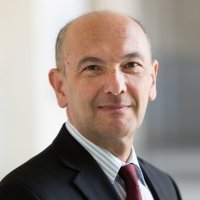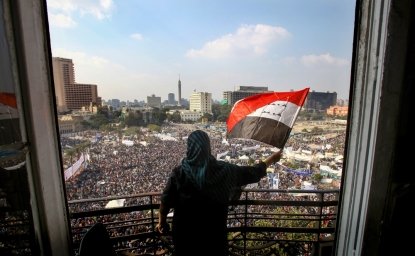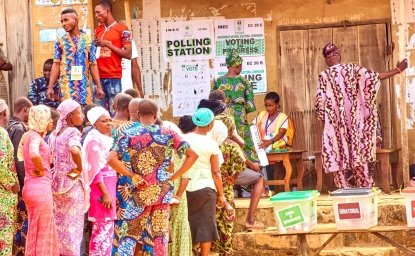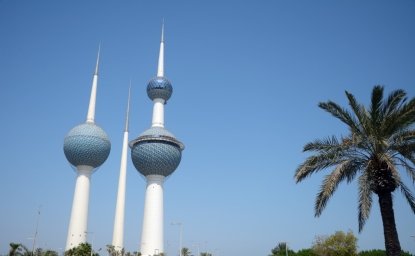Kennan Cable No. 61: Russia in the Changing Post-Soviet Space


The 30-year anniversary of the Soviet collapse will hardly be an occasion for a state celebration in Russia next year. Commemorations in the former Soviet republics will once again illustrate the difference between Putin’s view of history and the modern world on one side and the political outlook of millions of people celebrating their countries’ independence on the other. The growing gap between the official Russian discourse and the prevalent perceptions in its neighborhood has become painfully evident in 2020. With political unrest in Belarus and Kyrgyzstan, the recent war between Azerbaijan and Armenia over Nagorno-Karabakh, and the growing popularity of the EU-backed political forces in Moldova, the Kremlin’s goal for Russia to serve as regional guarantor of stability and security seems at risk. These events question the degree of Moscow’s influence on domestic political developments even in those countries that are dependent on Russia economically and in the area of security. Moscow now looks dangerously unprepared for a new set of threats and opportunities, while there is no evidence that Moscow is adapting its vision and regional strategy to rapidly changing circumstances. Russia’s regional leadership is eroding and it is perceived as an unreliable force by a growing number of actors. It remains hugely attractive as an economic and cultural hub for millions of people in the region, but the Kremlin is facing mounting challenges in translating this into effective soft power and an instrument of influence.
Old paradigms
The day after the Soviet flag came down from atop the Kremlin, citizens across the former Soviet Union were thrust into an unfamiliar world. Outside of Russia, people awoke in a new nation with little if any historical record as an independent state. Arguably the worst shock was reserved for the Russians themselves. Overnight, their nation had been reduced to borders last seen in the 17th century, with millions of ethnic Russians stranded on the wrong side of a previously meaningless border. Most Russians had difficulty recognizing the neighboring newly independent states, Ukraine and Belarus in particular, as separate nations. However, immediately after the Soviet collapse, the Russian government lacked the intentions, capabilities, or political will to try to restore the Soviet Union or take on a leadership role in the post-Soviet space. Throughout the 1990s, Russia focused on its own state-building by creating and stabilizing new institutions within its new borders. Many Russians believed that the other newly independent states owed their level of modern development entirely to historic Russian self-sacrifice, and were unwilling to invest further Russian resources there when conditions at home were so poor.
Russian elites began thinking about restoring Russia’s status as a great power and an influential center of a multipolar world in the late 1990s. Policymakers in Moscow came to view the post-Soviet space through the prism of its worsening ties with the West. Russia’s founding father of the movement that advocated restoring Russia as a great power was Evgeniy Primakov. An academic as well as former prime minister and foreign minister at different stages of his career, Primakov influenced those Russian great power believers who strove to contain U.S. global preeminence and advocated maintaining a sphere of influence in the territory of the former Soviet Union.
In the 2000s, with oil prices on the rise and under steady leadership by the young, disciplined, and highly dominant Vladimir Putin as president, Russians rediscovered their national pride, including pride in their history and traditional role as a global leader. In the post-Soviet space, Moscow adopted policies that promoted Russian hegemony. They sought to create a buffer zone of semi-dependent countries, all former Soviet republics, around Russia. Moscow often pursued policies of coercion, whether through strategic economic investment, corrupting foreign leaders, or outright threats. They relied on a very hard-edged realism rather than compete with other actors on the basis of attraction.
Putin transformed from a cautious centrist power balancer, tending to pursue partnerships with Western states in 2001-2002, to a leader more inclined to appeal to state-centric Russian nationalism at home through opposition to US policies, especially in the post-Soviet space. By 2003-2004, Moscow became convinced that the main goal of the United States and Europe in Eurasia was to block any Russian attempts to restore its historic role as the top regional hegemonic power. A series of “color revolutions” in Georgia (“Rose,” 2003), Ukraine (“Orange,” 2004), and Kyrgyzstan (“Tulip,” 2005), cemented in many Russian minds the argument that the West wanted to weaken Russia and thwart Moscow’s interests in its own backyard. As Henry Kissinger argued: “In the beginning of his presidency in 2001, Putin sought America as a potential strategic partner, primarily against Islamic extremism. But starting with American support for the Orange Revolution in Ukraine in 2004, Putin has gradually convinced himself that the U.S. is structurally adversarial.”[1]
Three Russian Narratives
Russian policymakers grew increasingly concerned that NATO and the EU, and the prospects for their enlargement and growing influence in the former Soviet space, not only infringed upon Russia’s geopolitical interests, but also threatened its very identity and historic mission as the cultural, political, and economic leader of the entire region. The Kremlin has adopted three narratives from Russian intellectual history to guide its actions at home and abroad.[2]
The first narrative describes an unchanging and unchangeable Russia and an uninterrupted flow of Russian history from the time of Grand Prince Vladimir (c. 956 – 1015) to President Vladimir Putin. The Kremlin’s successful portrayal of Russian history at home in a convincing manner played a key role in legitimatizing the regime and constructing state-centric Russian nationalism since 2012. Russia’s annexation of Crimea in 2014 accelerated this trend—it fit perfectly into the narrative and further developed the Kremlin-authored national myths. This narrative provides a historical anchor for Russian foreign policy, in contrast to the turbulent years of the late 1980s–early 2000s, when Mikhail Gorbachev and then Boris Yeltsin emphasized change in the form of reforms at home and partnerships abroad.
The second narrative concerns Russia’s relationship with the West and the unique role that Russian civilization plays in the world. This narrative was not only foundational for constructing a new Russian national identity; it also became the North Star for Russia’s foreign policy. Russia was no longer merely competing with the West on the global stage. In this narrative, the West emerged as an unrelenting coalition bent on changing Russia’s unique and increasingly conservative national identity rooted in centuries-old history. In this narrative, Russia has earned the right to global leadership and regional dominion because it has repeatedly saved modern civilization from Napoleon and Hitler. Today, this narrative is grounded in Russia’s role as the only nation, with its nuclear weapons and veto power at the UN Security Council, with the both the capacity and demonstrated willingness to counter American unipolar power.
Finally, the third narrative is grounded in the notion of a Russian World. In the Kremlin’s consideration, the Russian World includes areas abroad with large concentrations of Russian compatriots—those Russians stranded in newly minted states by the end of the Soviet Union. It also includes the expanse where Russian language, history, and culture are woven into the social fabric. Russia has used the Russian World concept to question the existing political boundaries in the post-Soviet space, and even whether countries like Ukraine or Belarus are, in fact, “real countries” at all. This narrative creates a much larger mental map of what Russia really is, and helps citizen and leader alike think of Russia as far larger than modern political boundaries depict.
After successfully annexing and integrating Crimea into the Russian Federation, and subsequently abandoning more ambitious plans in Ukraine by 2017, the Kremlin toned down policies based on historical myth-making. Following its failure in eastern Ukraine, Moscow tried to moderate its rhetoric in its relations throughout the Russian World. However, returning the Russia World concept from battle plan to the marketplace of ideas proved nearly impossible in the wake of images from Eastern Ukraine and lived experience among the governments and societies of neighboring states.
New challenges
The Kremlin narratives are now running into new challenges. And because the Kremlin doesn’t seem to have enough information, time, or processing power to deliberate properly in the COVID-19 era, Russian officials frequently base their decisions on old paradigms and readymade myths. For too long, Russian approaches to the post-Soviet spaces have been left not to diplomats, but to the ideologues, bureaucrats, and intelligence officers. They will continue to do what they have been doing unless the Kremlin rethinks the fundamentals of its approach to the region. The moment is coming, however, when the past is no longer prologue for Russia’s standing among the states on its border.
President Alexander Lukashenko’s regime in Belarus lost legitimacy in the eyes of many ordinary citizens in the aftermath of a rigged vote and the following crackdown on the opposition in August 2020. In response, the Kremlin employed the same instruction manual it used in reaction to the revolution in Ukraine in 2014. Putin worried about the menacing West encroaching on the Belarusian border. This concern was not groundless from the perspective of Russian strategists: the Pentagon is exploring permanently basing a significant U.S. military presence in Poland, where it has already rotated troops in recent years. Any U.S. military presence in Poland, next to the border with Belarus, fuels Kremlin suspicions regarding Western intentions.
After a brief hesitation, the Kremlin decided to support the Lukashenko regime and its iron-fisted crackdown on protests. Moscow under Putin has always preferred to deal with authoritarian leaders who enjoy full control over state institutions. If the Kremlin fears one thing, it is the impact of mass street protests toppling a head of state might have on Russian citizens. Two months after the clashes started, by which time there was ample evidence of the grassroots nature of the Belarusian protest movement, the Kremlin readout of the telephone conversation between Putin and Lukashenko showed that both were still focused on “the ongoing attempts at meddling from the outside.”[3] Five days after that conversation, a turning point came when the Russian Interior Ministry issued an arrest warrant against former Belarusian presidential candidate Svetlana Tikhanovskaya.[4] This confirmed Moscow’s determination not just to ignore Belarusian opposition, but to assist the regime’s onslaught against that opposition.[5] As a result, Putin may turn public opinion against Russia in urban areas of Belarus, which had been the most Russia-friendly country in the post-Soviet space.
Konstantin Zatulin, first deputy chairman of the Committee of the State Duma for the CIS, Eurasian Integration, and Relations with Compatriots, was the only member of the ruling party to challenge Moscow’s approach: “By unconditionally supporting Lukashenko, we are creating an enormous problem for ourselves in the future with the majority or a significant part of the Belarusian population. We are creating a problem for ourselves with the other Belarusian politicians and public figures, who are increasingly forced to seek sympathy in the West. Russia wants that least of all.”[6] Putin brushes off independent economic, social, and political actors within the societies of Russia’s neighbors. In his view, citizens protest only if they are financed and manipulated by Western intelligence services.
By autumn 2020, Moscow also lost the trust of many pro-Russia Armenians. Armenia hosts a Russian military base and Moscow is obligated by treaty to defend Armenia. Once fighting broke out with Azerbaijan over the Nagorno-Karabakh territory, many expected a forceful pro-Armenian stance by Russia in the conflict. Ruben Vardanyan, a well-known entrepreneur and philanthropist and one of the most influential Armenian-Russians, publicly urged the military-political elite of Russia “not to destroy their last allies, making it so that no one believes that by standing with Russia you can be really strong and successful, and not weak and humiliated.”[7] It took Putin more than a week to comment on the outbreak of fighting, and his words were underwhelming for many Armenians: “It is deeply regrettable that the hostilities continue, but they are not taking place in the Armenian territory.”[8] After 45 days of fighting, Azerbaijan emerged largely successful in retaking control of the territory it lost in the early 1990s. Armenia found itself “weak and humiliated” as Russian peacekeepers were finally deployed to effectively cement Azerbaijani gains. Moscow recognized Azerbaijani sovereignty over Nagorno-Karabakh, and from both legal and geopolitical perspectives, Putin’s position was impeccable. The problem is that many Armenians inside and outside the country now question Russia’s role as a security provider and staunch ally.
Kyrgyzstan is the only country in Central Asia where political leadership often changes as a result of mass protests. The latest power shift concluded in 2019, when President Sooronbay Jeenbekov, unlike his counterpart in Belarus, decided to resign on October 15 rather than be remembered in history as a leader “who shed blood and shot at his own citizens.” His resignation followed mass protests and demonstrations organized by opposition over a rigged election on October 4, which reportedly degenerated into a reign of chaos fueled by criminal elements.[9] Two weeks earlier, Mr. Putin firmly pledged to Jeenbekov that: “On our part, we will do everything to support you as the head of state and to support Kyrgyzstan and the people of Kyrgyzstan in achieving the major goals that you set for the country’s development.”[10] After the protests started, Putin soon demonstrated his support was more for the entrenched political elite than the people of Kyrgyzstan.
In each instance, Moscow chose to support leaders and pursue interests that alienated many pro-Russia constituencies in these Russia-friendly counties. Popular attitudes abroad are simply not factored into the Kremlin’s calculus. Putin instead focuses exclusively on Russia’s status and geopolitical interests, and remains confident that he can secure both through support from post-Soviet leaders who can be coerced or bought. From the Kremlin’s perspective, citizens in the post-Soviet space protest against pro-Russian leaders only when the West meddles. Putin reiterated this position again on November 10, 2020: “We regard this as unacceptable that external forces are trying to enforce any decisions on the Belarusian people… The same is true of the recent developments in Kyrgyzstan and the unfolding internal political fighting in Moldova.”[11]
This perspective should come as small surprise, as the Kremlin is little influenced by Russian citizens’ attitudes or aspirations at home. Putin is used to running a state where the capacity of individuals to act independently, to make their own free choices, and to affect change are discounted and undermined at every turn. When citizens of other states challenge their leaders, act independently and band together to oppose their government, especially within the post-Soviet space, it surprises the Kremlin and sends it looking for foreign interference.
Unrealized potential
Russia's ties with its neighboring states often develop not because of, but in spite of official policies. People in the post-Soviet space are increasingly comfortable working outside of national government channels and advancing transnational relationships based on individual strategies, including employment, education, and personal ties.[12] Multiple bonds and interactions link people across the former Soviet borders. Russia has been a magnet for migrants from the former Soviet Union.[13] It ranks fourth in the world (after the United States, Germany and Saudi Arabia) in terms of the number of migrants entering the country; the absolute majority is from the post-Soviet space.[14] Millions of people already have or are seeking to acquire a Russian passport as a second one, sometimes without moving to Russia for permanent residence.[15] Across the former Soviet Union, the Russian language remains the lingua franca, and Russia is a top trade partner and investor across the region.
All this stands in sharp contrast with a widespread perception of the Russian government as a hostile force exporting undemocratic practices to Belarus, supporting separatism in Ukraine, Georgia, and Moldova, and tolerating police corruption and racist attitudes towards guest workers from Central Asia at home. The main reason for recent Moscow’s failures in the post-Soviet space is its reliance on obsolete paradigms and historical narratives and its unwavering state-centric approach to international relations. Russia has demonstrated incompetence in working with non-traditional actors in international relations: with political oppositions, with civil society institutions, with diasporas. The gap between the state and society within Russia is projected into the post-Soviet space, and the potential Russian influence in the region goes unrealized.
[1] Jeffrey Goldberg, “World Chaos and World Order: Conversations with Henry Kissinger. The Former Secretary of State Reflects on War, Peace, and the Biggest Tests Facing the Next President,” The Atlantic, November 10, 2016, http://www.theatlantic.com/international/archive/2016/11/kissinger-order-and-chaos/506876/
[2] Narratives unite distinct events by one big idea. Isaiah Berlin noted that “there is no doubt that ideas were taken more seriously, and played a greater and more peculiar role, in Russian history than anywhere else.” He also argued “that objective truth exists, that it can be discovered, and that life, individual and social, can be lived in its light – this belief is more characteristic of the Russians than of anyone else in the modern world. To take ideas with complete seriousness itself transforms them.” Isaiah Berlin, “Introduction,” in Russian Intellectual History. An Anthology, by Marc Raeff (Amherst, New York: Humanity Books, 1999), 5.
[3] President of Russia, “Telephone Conversation with President of Belarus Alexander Lukashenko,” October 2, 2020, http://en.kremlin.ru/events/president/news/64145
[4] “Russia Issues Arrest Warrant Against Belarus’s Ex-Presidential Candidate Tikhanovskaya,” October 7, 2020, https://tass.com/politics/1209811
[5] The fact that two prominent opposition activists, though not the leaders, came to Moscow in mid-October may indicate a minor change in Russia’s policy. See Andrey Kolesnikov, “Ivan Rodchenkov: “Est v zhizni to, chto strashno (Ivan Rodchenkov: There Are things in life to fear),” Kommersant, October 14, 2020, https://www.kommersant.ru/doc/4529614
[6] Anton Troianovski, “Putin, Long the Sower of Instability, Is Now Surrounded by It,” The New York Times, October 7, 2020, https://www.nytimes.com/2020/10/07/world/europe/putin-belarus-kyrgyzstan-caucasus.html
[7] Timofey Dzyadko, Artem Filipenok, Natalia Galimova, “Vardanyan asked Putin for help in the Karabakh conflict,” RBC, October 5, 2020, https://www.rbc.ru/politics/05/10/2020/5f7b3a089a7947ffd7eedb8c
[8] President of Russia, “Interview with Rossiya TV Channel,” October 7, 2020, http://en.kremlin.ru/events/president/news/64171. Later, on October 22, 2020, Putin reiterated: “Armenia and Azerbaijan are both equal partners for us.” http://en.kremlin.ru/events/president/news/64261
[9] Andrew Higgins, “From Hiding, Head of Central Asia’s Only Democracy Says He’s Quitting,” The New York Times, October 15, 2020, https://www.nytimes.com/2020/10/15/world/asia/president-kyrgyzstan-resign.html
[10] President of Russia, “Meeting with President of Kyrgyzstan Sooronbay Jeenbekov.” September 28, 2020, http://en.kremlin.ru/catalog/countries/KG/events/64098
[11] President of Russia, “Vladimir Putin chaired a videoconference meeting of the Shanghai Cooperation Organisation Heads of State Council,” November 10, 2020,
http://en.kremlin.ru/events/president/news/64385
[12] This is a global phenomenon. The US National Intelligence Council assessment of global trends describes this scenario for the future of many regions. See Office of the Director of National Intelligence (website), “Global Trends. Paradox of Progress,” https://www.dni.gov/index.php/global-trends/three-scenarios
[13] Moscow’s plans to stimulate compatriots to move to Russia for work, permanent residence, and citizenship is reflected in “Russia’s State Migration Policy Concept of the Russian Federation for 2019-2025.” President of Russia (website), “Executive Order on Russia’s State Migration Policy Concept for 2019–2025,” http://www.kremlin.ru/events/president/news/58986
[14] World Migration Report 2020 (Geneva: International Organization for Migration, 2019), 26
[15] See Igor Zevelev, “New Russian Policy Toward Ukraine: Citizenship Beyond the Borders,” Kennan Cable No. 54, July 2020, https://www.wilsoncenter.org/publication/kennan-cable-no-54-new-russian-policy-toward-ukraine-citizenship-beyond-borders
Author

Former Professor at George Marshall European Center for Security Studies; Former Director, MacArthur Foundation, Moscow Office

Kennan Institute
The Kennan Institute is the premier US center for advanced research on Eurasia and the oldest and largest regional program at the Woodrow Wilson International Center for Scholars. The Kennan Institute is committed to improving American understanding of Russia, Ukraine, Central Asia, the South Caucasus, and the surrounding region though research and exchange. Read more

Explore More
Browse Insights & Analysis
Living Interesting Lives: Daily Life Amidst Coup D’etat and Revolution

Did the 20th Century Just End? One Historian’s Perspective

Democratic Governance in Africa: Trendlines and Transformations
